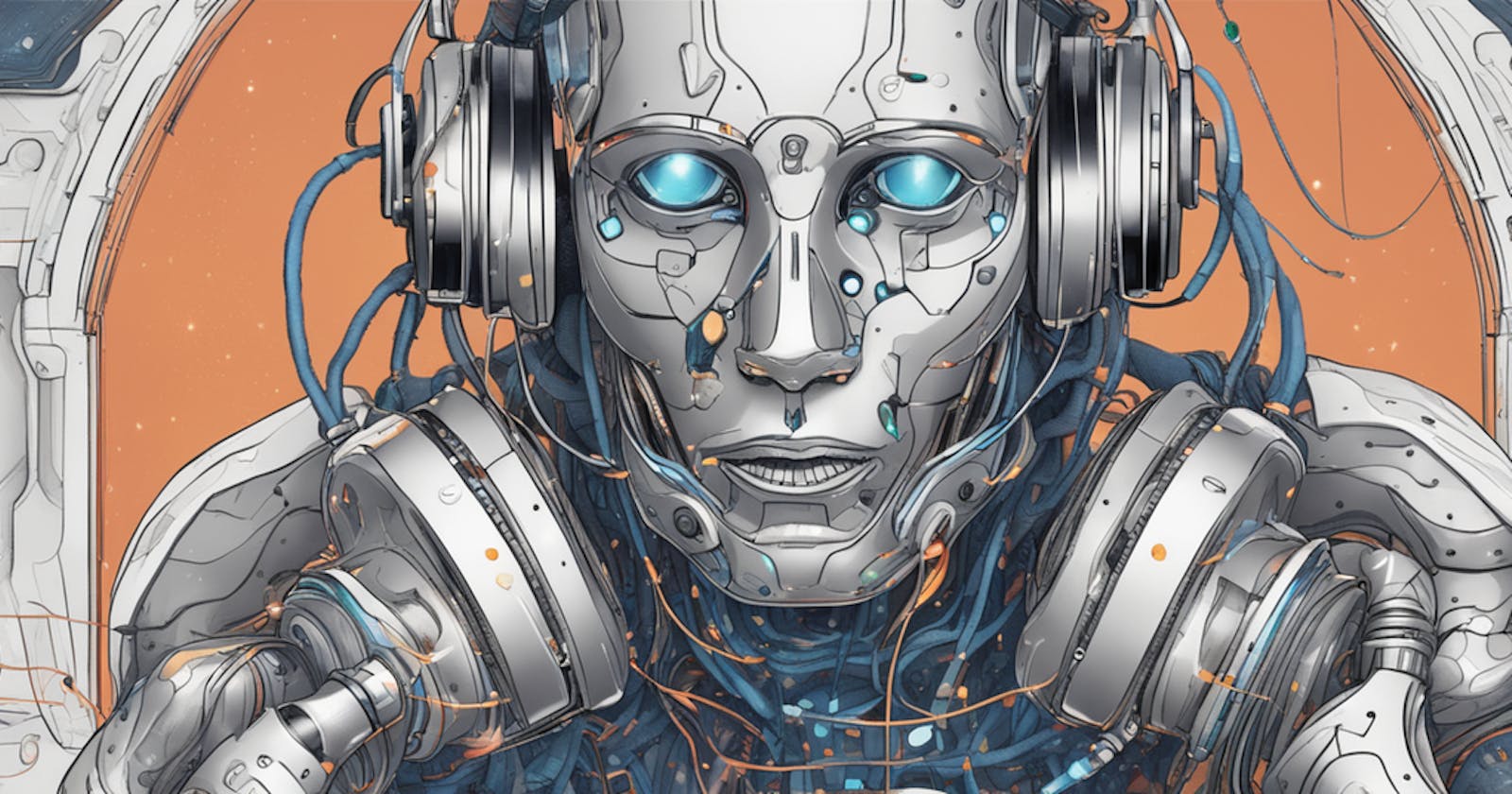AI-Narrated Audiobooks

Have you ever stumbled upon an audiobook with an intriguing plotline, but the robotic voice-over narration made you cringe?
That might be a thing of the past with AI-narrated audiobooks. In recent times, we have witnessed a rise in the use of artificial intelligence (AI) in several industries, including the audiobook industry. AI-narrated audiobooks are a product of software that uses speech synthesis technology to convert text to spoken words.
While the technology promises faster delivery, cost-effectiveness, and better production time, it raises several ethical questions. In this article, we explore the advantages and disadvantages of AI-narrated audiobooks, their impact on the industry and society, the ethical dilemmas posed by their use, and the rising popularity of AI-narrated audiobooks. So, grab your headphones and let's dive in.
Advantages of AI-Narrated Audiobooks
AI-narrated audiobooks have gained immense popularity due to their several advantages. Firstly, they are cost-effective as voice actors are not required, reducing the production cost significantly. Secondly, the production time is much faster, enabling audiobooks to hit the market quickly. Thirdly, AI-narrated audiobooks allow for flexible work schedules, allowing producers to work on multiple projects simultaneously. Lastly, they have minimal human errors as the narrations are automated, reducing the possibility of errors.
Disadvantages of AI-Narrated Audiobooks
As with any technological advancement, the rise of AI-narrated audiobooks comes with its own set of disadvantages. Foremost among these is the potential loss of employment opportunities for voice actors. While digital narrators may be cost-effective and faster to produce, they pose a threat to the livelihoods of human voice actors who rely on such work to make ends meet.
All in all, while AI-narrated audiobooks may be innovative and exciting, they're not without their flaws. As with any other technological innovation, we must weigh the pros and cons of using AI in this way. We're entering uncharted waters, and it's up to us to ensure that we steer our course towards a future that is both innovative and ethical.
Impact on the Audiobook Industry
The audiobook industry is currently undergoing a technological disruption, akin to that of the music and movie industries, with AI-narrated audiobooks leading the way. As companies seek new, cost-effective methods of production, the relationship between publishers and voice actors has become increasingly complex. The introduction of AI-narrated audiobooks presents a somewhat dubious ethical dilemma, with potential ramifications for all involved.
Redefining labor relations in the industry has created a crisis for many professional voice actors, who face a potential loss of employment and the devaluation of their expertise. A form of automation, AI-narrated audiobooks enable publishers to produce content quickly and with minimal human error, resulting in the potential for a greater output of titles. Moreover, it has the potential to change the reader experience forever.
As the use of AI-narrated audiobooks continues to increase, it is likely that we will see more AI-generated books hit the market, which begs the question of who owns the creation of these books?
Furthermore, the lack of emotion or nuance in AI-generated narration could have implications for the art of storytelling itself and how it is perceived by readers.
Ethical Dilemmas
As with any technological advancement, the rise of AI-narrated audiobooks brings with it numerous ethical dilemmas. One of the biggest concerns is the relationship between man and machine. With AI technology becoming more advanced, it's not hard to imagine a future in which AI narrators become indistinguishable from human ones. This could lead to a further erosion of the boundary between human and machine, with potentially devastating consequences for our understanding of what it means to be alive.
Another concern is the issue of AI biases and preconceptions. AI is only as unbiased as the people who program it, and there's always the risk that ingrained biases could be propagated through the technology. This could have far-reaching consequences – particularly when it comes to issues of representation and diversity.
Finally, there's the question of determining authorship and ownership. When an AI narrates a book, who owns the rights to that performance? Is it the author of the book? The narrator who provided the original voice used to train the AI? The company that created the AI technology? These questions are yet to be answered, and they raise important philosophical and legal issues that will need to be resolved as the technology continues to evolve.
Societal Implications
The rise of AI-narrated audiobooks is undoubtedly an example of technological disruption. Its impact, however, extends beyond the audiobook industry. It has the potential to impact creative industries as a whole, redefining labor relations and reshaping the future of work.
With the rise of AI-narrated audiobooks, there could be a potential loss of employment opportunities for voice actors, leading to a radical shift in who gets to participate in creative industries. At the same time, AI-narrated audiobooks provide flexibility and speed in production, and they can be a potential game-changer for those who face accessibility barriers to reading.
While AI-narrated audiobooks offer undeniable advantages, it is important to question the role of AI in shaping the future of work. As more tasks and responsibilities become automated, there is a need to ensure that machines complement human efforts, rather than replace them.
Moreover, there is a need to consider the impact of AI biases and preconceptions, particularly in cases where AI is relied upon to make important decisions. Determining authorship and ownership is yet another ethical dilemma that needs to be addressed as we navigate through the age of AI-narrated audiobooks.
With constantly-evolving AI technology, it is vital to understand the implications and address them proactively as we move forward.
Conclusion
AI-narrated audiobooks are a promising development, but they also raise critical questions regarding their ethical implications. The relationship between man and machine and AI biases are ethical concerns that require in-depth analysis.
As we navigate through this technological advancement, it is essential to consider our responsibility to maintain a balance between technological progression and social responsibility.
 Develop and Solve
Develop and Solve